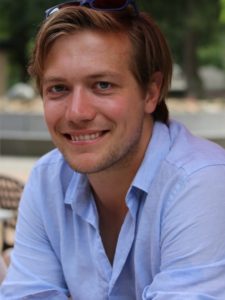5 minutes with visiting Masters student, Lars ter Morsche
 Lars, where are you visiting from?
Lars, where are you visiting from?
I’m an MSc student from the University of Groningen/University Medical Center Groningen in the Netherlands.
What are your research interests?
Being only at the very start of my research career, those interests have started to take shape but are at the same time yet to be completely defined. The well-defined foundation for me was an interest in the molecular basis of life (and disease), which I was able to explore partly during a previous internship in molecular oncology. Having completed that I wanted my current internship to shift more towards a biochemical and protein angle. I am currently interested in studying the endogenous interactome of the LINE-1 RNP. LINE-1 (or L1) is a retrotransposon that can copy-and-paste itself into the human genome via an mRNA intermediate. This mechanism relies on the interaction of the mRNA with its two self-encoding proteins, and this self-proliferative capacity has led to the fact that over the course of evolution, LINE-1 has been able to multiply to occupy 17% (!) of the human genome today.
How did you come to learn and work with the NCDIR?
The research Master’s program that I’m enrolled in provides the opportunity to pursue a 6-months research internship in a lab of choice, after which I plan to pursue a PhD. In Groningen I met Dr. John LaCava, and together we set up this collaboration of me working under his supervision in the Rout lab.
What do you hope to learn?
Working in the Rout lab, in a world-renowned institution such as The Rockefeller University, and under the direct supervision of Dr. John LaCava provides me with a set of skills and knowledge that I will cherish for the rest of my scientific career. Coming to the Rout lab I expected an environment of distinguished researchers that could help me broaden my knowledge in the field of biochemistry and protein biology, and yet also one that would challenge me and help me develop the skills to become an independent researcher.
How has your time been so far?
The knowledge base in the lab is enormous, as is the willingness to share that knowledge. I’m also given the opportunity to independently search for the path of scientific progress, and – perhaps most importantly – learn from my mistakes. I’m confident that I will step out of the Rout lab with a solid base for starting a PhD, and I would be very glad to collaborate with the Rout lab or any of its members in the future.
